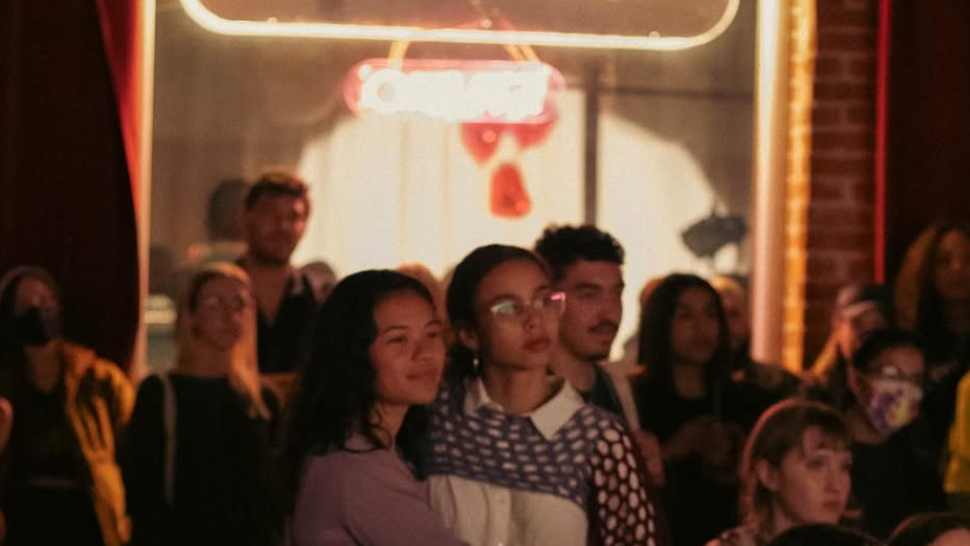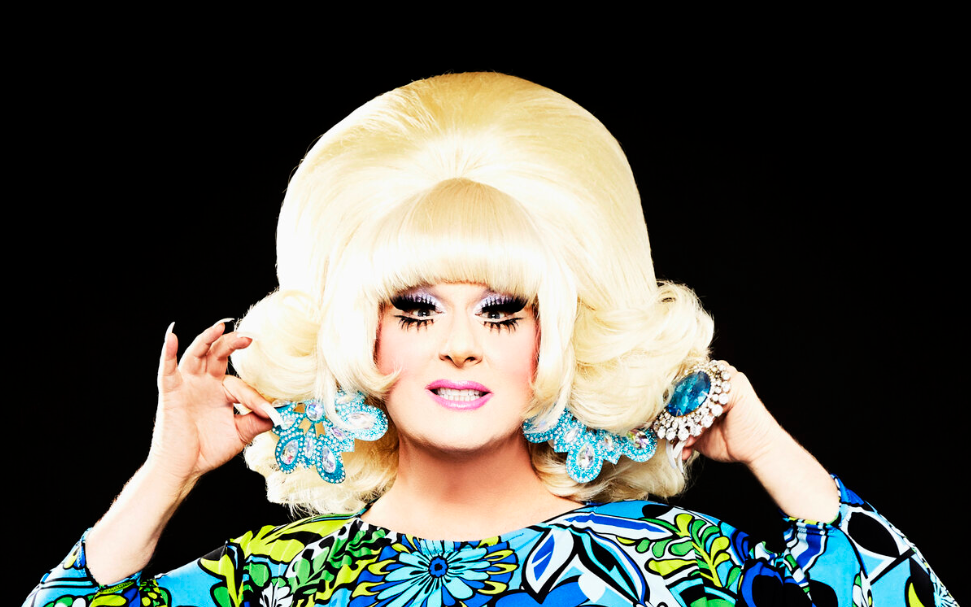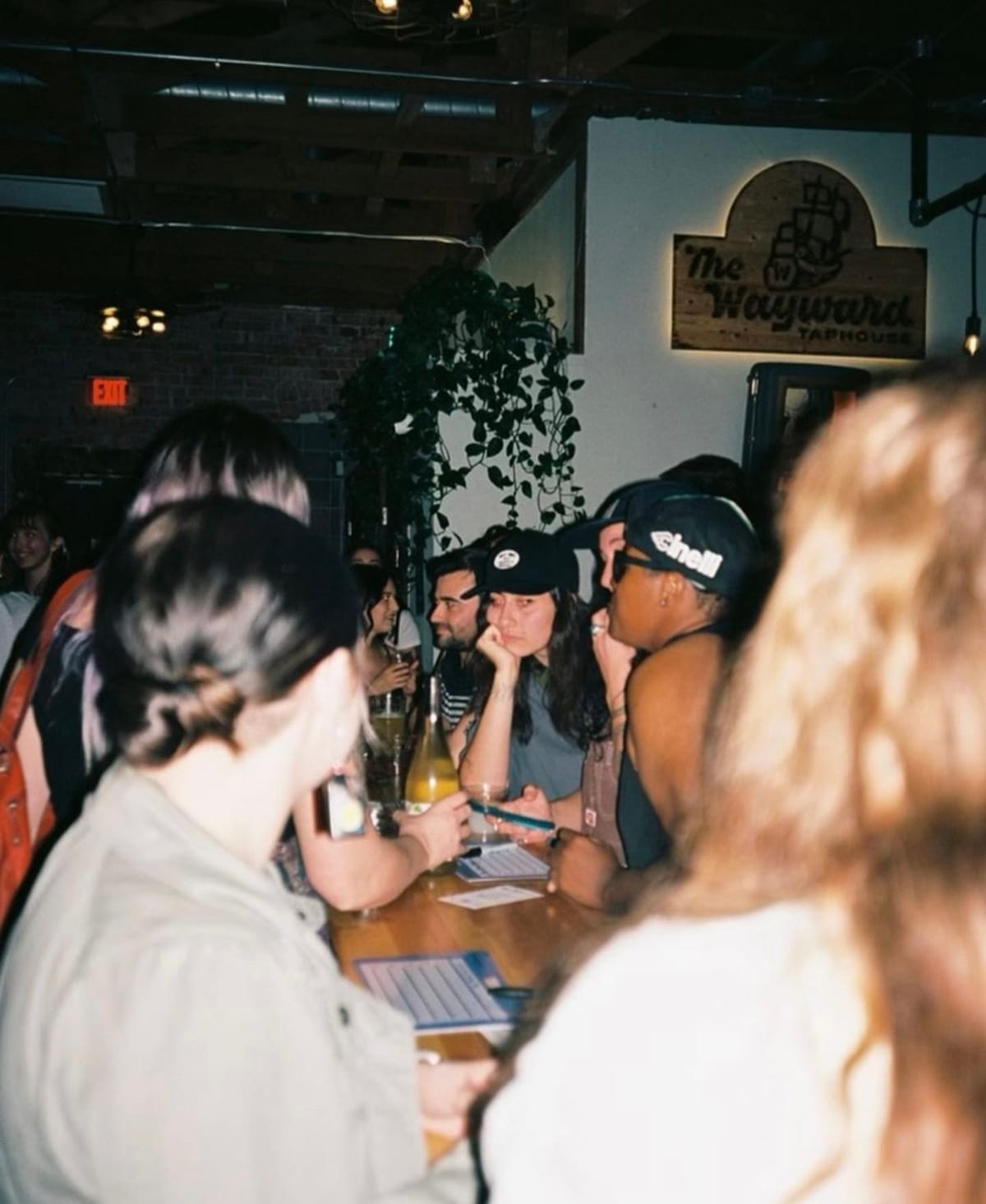No Debate, No Vote, No Explanation: The Tactics Killing LGBTQ+ Rights Bills in Arizona
In Arizona, one person can stop a bill from moving forward in the Legislature, and the public never gets a chance to have their voice heard.
From growing up in Tennessee to creating staying power in Southern Arizona, TC Tolbert is on a mission to let us all be kind to ourselves.

TC Tolbert is a poet, educator, and community advocate whose work is deeply rooted in the intersections of identity, language, and activism. As the Tucson Poet Laureate, TC has used poetry as a platform to amplify queer and trans voices, cultivate inclusive literary spaces, and foster meaningful dialogue.
Even TC’s email signature shows nuance in language and how it can change the way we interact with words on a page. The poet in real life goes by he/him, but loves being called “GRRRRRL” in public, and uses s/he pronouns in writing.
“Isn’t language fun?” TC writes at the end of the email signature.
And though the journey from an aspiring high school English teacher to a nationally recognized poet came with challenges—particularly in how to wield one’s privilege to help communities without hogging the mic—it reflects a commitment to both personal and collective transformation.
In Arizona, where LGBTQ+ communities continue to navigate both progress and backlash, TC’s work holds particular urgency. Through workshops, public readings, and mentorship, s/he has created vital spaces for queer and trans writers to explore their voices in a state where policies often threaten their existence. And centering marginalized narratives, TC’s poetry challenges dominant narratives while offering refuge and solidarity to those who need it most.
LOOKOUT writer Royal Young got a chance to talk to TC over the phone, and spoke about the journey to be one of the U.S.’s few genderqueer poet laureates, what it means to make mistakes in the community, and how we need to “hold each other gently” in the coming years:
This interview has been condensed and edited for length and clarity.

Royal Young (LOOKOUT): Hey, TC—let’s start with your path to becoming Tucson’s Poet Laureate and what that entails.
TC Tolbert: There was a call for applications, and two different people asked if they could nominate me. At first, I felt sheepish, but when the second person asked, I thought, "Okay, well, I guess there’s two people."
RY: Sometimes we need that push.
TT: Exactly. Like many writers, I started writing as a kid but never thought of it beyond a hobby. I got my degree in education to become a high school English teacher. But after hiking the Appalachian Trail, I realized I needed to address two big things: my gender and poetry.
RY: Those are big things.
TT: And they’re kind of related.
RY: Funny how that works out.
TT: Exactly. So, I went back to my undergrad mentor and asked if I could study poetry. He said, "There’s a whole world of that," and suggested a program in Tucson. I was in Tennessee at the time, but I got into the master’s program here. Instead of picking a top school strategically, I just thought, "Tucson seems like a place I could live."
RY: The desert pulled you in. That’s how I ended up here too.
TT: It’s amazing. When I arrived, I immediately met trans people. At the time, I was presenting as masculine—a dyke boy—I don’t think I even knew the word "genderqueer." I was just like, "Oh my god, this place is amazing." Everyone here is queer—which, unfortunately, isn’t totally true, but kind of true.

RY: We can get into that later.
TT: Long story short, it wasn’t until 2001-2002 that I realized writing could be a serious pursuit. I went to grad school, stayed in Tucson, and rooted myself deeply in the queer and arts communities. Eventually, people started saying, "Maybe you should be the poet laureate."
RY: What a cool journey. Your writing and poetry seem deeply tied to identity, education, and community—things that feel embedded in the role of poet laureate.
TT: Absolutely. Some poets have a solitary writing life, and that’s great. But for me, writing has always been about working with language and placing things next to each other—it all feels like a metaphor for how you live. It’s always felt important to be in conversation with other poets and to create space for people to tinker on the page and in their hearts.
RY: What are the duties of a poet laureate? How do you activate your title?
TT: It’s shifted over the years. Initially, it was a three-year term, but it was extended when I won a national poet laureate fellowship. These public arts titles are an honor, but they don’t necessarily pay the bills, so you have to balance other work while leveraging the position. I focused on poetry workshops, particularly with queer and trans folks, and public readings. I think it was also a moment of positive representation for queer and trans people. As far as I know, (in 2017), I was the first openly queer and trans poet laureate at either the state or city level in the country.
RY: That’s incredible.
TT: Later, I applied for a fellowship to run poetry workshops focused exclusively on queer and trans writers. LGBTQ+ voices are often included in workshops, but I wanted to flip that—where straight and cis participants could engage with poetry by queer writers. I got the fellowship in 2019, and the workshops were supposed to run through 2020, but then COVID happened. I shifted everything online and ended up hosting about 30 workshops across libraries and community groups. I’m still running a free weekly Zoom session.
RY: That’s very cool. In an odd way, COVID expanded access—especially for differently abled people or those who can’t always attend in-person events.
TT: Exactly. We’re about to start our fifth year, which is wild. During peak lockdown, people would Zoom in from across the world. One person always joined at 1 a.m. their time.

RY: That shows how much we need these spaces. So, this issue of LOOKOUT Magazine focuses on queer people not feeling safe in our state. Many are considering leaving. You first experienced Tucson as a queer-positive place, but discrimination persists. Can you talk about that?
TT: I grew up in Chattanooga, Tennessee, so I’m familiar with terrible state policies. Tucson is a badass queer bubble, but Arizona as a whole is different. Tucson has had a non-discrimination policy for over 20 years. In the ’90s, it even had a trans mental health hotline and support groups. But right now, it’s a devastating moment, especially for queer and trans youth. That’s why I’m committed to staying—to help hold and sustain the networks that have supported me.
Even something as simple as showing up to a poetry reading as an audience member is important. Not just when you or your friends are reading—just being there to receive the art is a beautiful space to inhabit.
-TC Tolbert
RY: It feels like a backlash against progress.
TT: 100%. Every forward movement gets pushback, and that’s exactly what’s happening now.
RY: I feel that. I’m turning 40 in June, and as a ’90s kid in Manhattan, I’ve seen a lot—growing up around AIDS, drugs, and social activism. Seeing resilience through tough times gives me hope.
TT: Totally. Our job at our age is to remind younger folks that we’ve been here, and we’ve got them.
RY: And history is important—showing we’ve always been here and have generations of activists to draw from.
TT: Absolutely.
RY: I love that your website acknowledges that we live on Tohono O’odham and Pascua Yaqui land. How does disrupting colonialism fit into your work as poet laureate?

TT: I see myself as a listener, learner, and sharer. I make an intentional effort to bring Indigenous poets into the conversation and introduce students to their work—especially those who are also queer and trans. It’s not hard to do a little research and uplift these voices—the internet is big. Every event is an opportunity to reflect our real community.
RY: Absolutely. Practicing these things in our daily lives adds up.
TT: I love that word—practice. It’s never about perfection or finishing the work.
RY: And privilege shouldn’t feel like a burden—it should be a practice of continued engagement.
TT: Exactly. Even something as simple as showing up to a poetry reading as an audience member is important. Not just when you or your friends are reading—just being there to receive the art is a beautiful space to inhabit.
RY: Absolutely. And that ties into the power of poetry—to connect people, illuminate experiences, and break down barriers. Even when I know nothing about someone’s life, their poem can be that flashpoint.

TT: Yes! Poetry creates a space where we drop our posturing and just connect as humans with complicated experiences. It’s sacred and special. You don’t find that in most other settings.
RY: 100%. Any final words of wisdom?
TT: Cultivate trust and tenderness with yourself. Remember, in queer and trans spaces, we’re interacting with people who are multiply injured, traumatized, and oppressed. Sometimes, we turn our defenses on each other. Boundaries are good, but we should also hold each other gently. And keep some of that mystery! Poetry reminds us that we don’t actually know all the answers.
At LOOKOUT, we believe in the power of community-supported journalism. You're at the heart of that community, and your support helps us deliver the news and information the LGBTQ+ community needs to thrive.
If you like independent and accountability-driven queer news, then you'll love LOOKOUT's weekly newsletter.
LOOKOUT Publications (EIN: 92-3129757) is a federally recognized nonprofit news outlet.
All mailed inquiries can be sent to 221 E. Indianola Ave, Phoenix, AZ 85012.